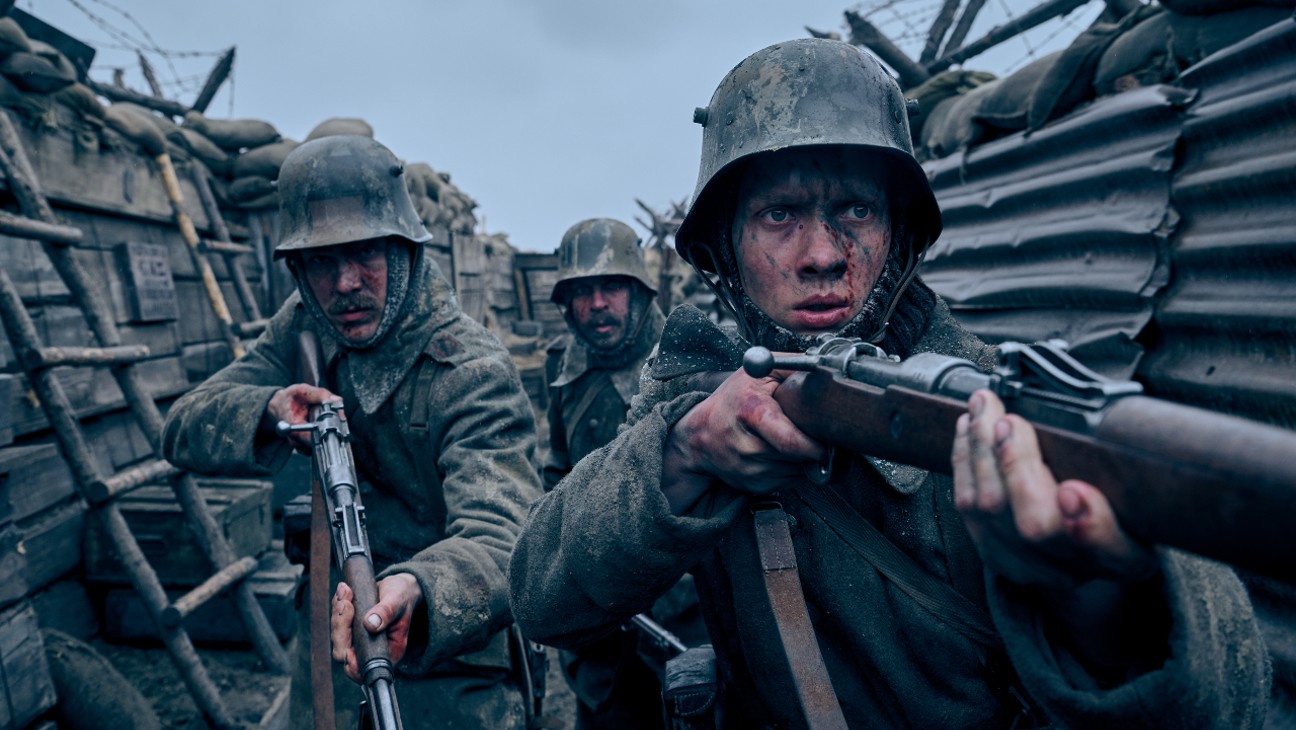We saw the movie “On the Western Front Without Change” on Netflix. This novel by Remarque, published in 1928, has had several film adaptations over time, this is the most recent. The fact that one of the roles is played by the excellent Spanish-German actor Daniel Brühl (Daniel Bruhl).
In retrospect, the book, which later became the best-selling book of all time and the most loved by readers in Germany, did not even manage to attract the interest of publishers at first. The editors feared that no one would want to read the memoirs of the world war, but the response of the population was great. Erich Marie Remarque was a war veteran. Enlisted in the army in 1917, he ended up on the western front. Faced with all the futility of war and the degradation of people’s personalities it causes, Remarque ends up in a war hospital. He was badly wounded in the leg, arm and neck, so the writer was probably lucky: he waited for the war to end in the hospital. The novel “On the Western Front Without Change” followed as a reaction to the attempts of the Weimar Republic to justify the loss. Officially, no power will want to admit its defeat and its enormous losses. However, this official policy annoyed former soldiers. Therefore, Remarque’s work also became unique and special. It was the story of a man who had not been harmed by an enemy soldier, who had no reason to become an animal and kill others. These were ordinary people who were thrown by power into the terrible torment of fate – to leave their life choices in the one and primitive category of “live or die”. That is why Remarque’s book also touched the hearts of other human beings. They were tired of trying to justify the war. While the author appreciated the fruits of his success, the book was not liked by the official authorities. The moment the National Socialists came to power made a lot of difference. They banned Remarque’s works, especially about the war. His books were publicly burned, but no one managed to erase them from his memory …
In fact, it never occurred to me that it could be so relevant today. Of course, Putin spoiled my enjoyment of watching war movies. Until now I was interested in the history of both world wars, both books and films. I loved Antony Beevor’s book “Fall of Berlin 1945”, which mercilessly reflects the experience of wartime on both the side of the winners and the losers. Arthouse films, such as “Saving Private Ryan”, “Battle for Hexridge” and others, which may not be authentic documentaries, but made us look offensively and influentially at historical events, left a deep impression. Now I enjoyed watching war-themed movies and reading books about it has dropped considerably. This, of course, because we were all shocked by the return of war conditions in the civilized world. Yes, perhaps the reluctance to watch films depicting the cruelty and nonsense of war is simply a desire to protect oneself. In the past, it wasn’t necessary to act like this: war movies could be seen just like Spider-Man fiction, knowing full well that it wasn’t actually going to happen to us. Now there is no such belief.
“”It’s autumn. There are very few old soldiers left. Out of seven classmates, I am the last one alive here. I am extremely calm. Let the months and years go by, they won’t take anything away from me, nothing can be taken away from me anymore. I am so alone and have so few expectations from life that I face them without fear. The will to live that has sustained me all these years is still in my hands and in my eyes “. [..] It fell in October 1918, on a day that passed so quietly and peacefully at the front that the command of the army limited itself to a single sentence in its report: “No change on the western front”, so EM Observations in the novel on futile battles and the deaths of war participants – young people – at the forefront. It is just a pity that it has no effect on the leaders of the tsarist demonstrations and their followers. The horrors of war and the torn lives and lives of other people are just a change for them in their lust for power and their imaginary superiority.


